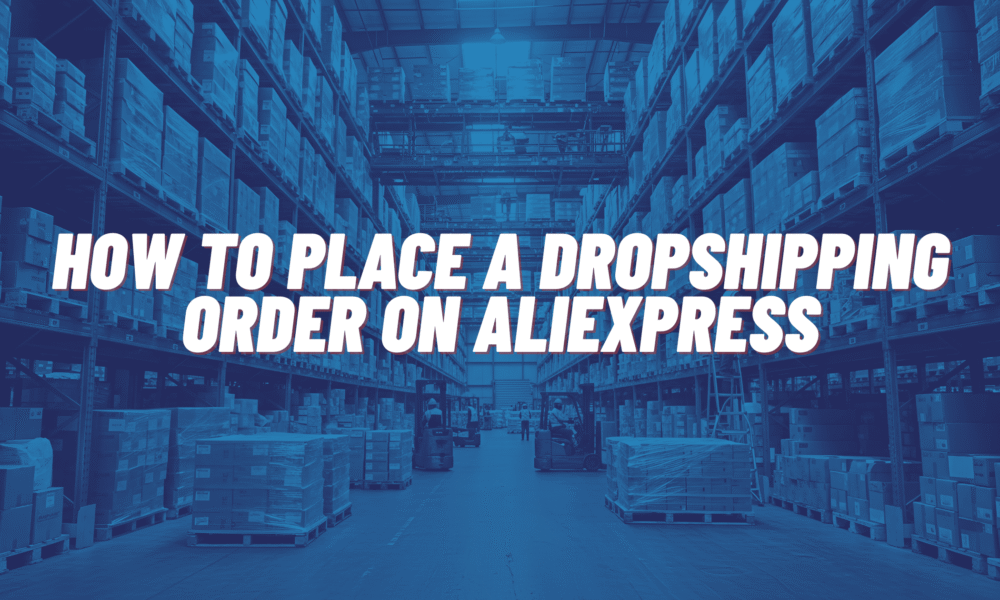If you own a Shopify dropshipping store, one of the most vital…
Do I Have To Pay Taxes On Dropshipping Earnings?

If you’re a dropshipper or considering starting a dropshipping business, you may wonder whether you need to pay taxes on dropshipping earnings. This comprehensive guide will answer all your questions about dropshipping taxes.
As dropshippers, we navigate a vast and complex digital landscape, always searching for new opportunities to make our businesses thrive.
But amid all this excitement and growth, it’s easy to overlook one of the most critical factors that can make or break our success: taxes.
Just like a ship needs a sturdy anchor to stay in place during a storm, our dropshipping businesses need a solid understanding of tax regulations and obligations to weather the ups and downs of the marketplace.
In this article, we’ll explore the ins and outs of dropshipping taxes and equip you with the knowledge and tools you need to chart a course for financial success.
So join us as we set sail into the world of dropshipping taxes, and discover how you can steer your business toward a brighter future.
Introduction:
As the world becomes increasingly digital, more and more people are turning to online businesses as a way to make money.
Dropshipping is one of the most popular online business models, where you sell products without holding inventory. While dropshipping can be a great way to make money, it’s essential to understand the tax implications of running a dropshipping business. In this guide, we’ll answer many people’s questions: Do I have to pay taxes on dropshipping?
Sign up for a free trial and enjoy 3 months of Shopify for $1/month on Select Plans.
Do I Have To Pay Taxes On Dropshipping?
Like a ship sailing through uncharted waters, the world of dropshipping can be a dark and confusing place regarding taxes. But the short answer to the question “Do I have to pay taxes on dropshipping?” is an unequivocal YES.
Like any other business, dropshippers are legally required to pay taxes on their income, whether they’re operating as a sole proprietorship, LLC, or corporation.
However, the specific tax obligations of dropshippers can vary depending on several factors, including the location of their business, the products they’re selling, and the platforms they’re using to sell them.
Having dived deeper into the world of dropshipping taxes and we’ve provided you with a clear and concise roadmap for staying compliant with the law while maximizing your profits. The tax implications of dropshipping can be more complicated than with other types of businesses. Here’s what you need to know:
Sales Tax
One of the most critical taxes to consider when dropshipping is sales tax. A sales tax is a tax on goods and services sold to end consumers. In most cases, you must charge sales tax on your dropshipping sales if you have a physical presence in the state where your customer lives.
This means that if you have customers in multiple states, you may be required to register for and collect sales tax in each state.
Income Tax
In addition to sales tax, you’ll also need to pay income tax on your dropshipping earnings. Your dropshipping income is self-employment income, meaning you’ll need to report it on your tax return. You may also need to pay estimated quarterly taxes throughout the year to avoid penalties.
International Taxes
If you’re dropshipping to customers outside of the United States, you’ll need to consider the tax implications of those sales as well. For example, you’ll often be required to pay taxes in the country where your customer lives.
Expenses and Deductions
When it comes to taxes, it’s not just about what you owe. You can also use deductions and expenses to lower your tax bill. As a dropshipper, you can deduct expenses such as website hosting, advertising, and shipping costs.
Conclusion:
Dropshipping can be a great way to make money online, but it’s essential to understand the tax implications of running this business. In most cases, you’ll need to pay sales tax, income tax, and potentially international taxes on your dropshipping earnings.
However, taking advantage of deductions and expenses can lower your tax bill and keep more of your hard-earned money. So, for example, suppose you need clarification about your tax obligations as a dropshipper. In that case, it’s always a good idea to consult a tax professional who can help you navigate the complexities of dropshipping taxes.
FAQs About Taxes On Dropshipping
Do I have to pay sales tax on products I sell through dropshipping?
It depends on the laws in your state or country. In the US, sales tax laws vary by state, and some states require online retailers to collect sales tax on orders shipped to customers within the state. Therefore, it’s essential to research the laws in your state and comply with them to avoid penalties and fines.
How do I report my dropshipping income on my taxes?
Dropshipping income should be reported as business income on your tax return. If you’re a sole proprietor, you can report your income and expenses on your personal tax return Schedule C. If you’re operating as an LLC or corporation, you must file a separate tax return for your business.
Can I deduct expenses related to my dropshipping business from my taxes?
You can deduct certain expenses related to your dropshipping business from your taxes. These may include expenses such as advertising, website hosting fees, software and tools, shipping and handling costs, and more. It’s essential to keep accurate records of your expenses to ensure that you can claim them on your tax return.
What happens if I don’t pay taxes on dropshipping?
Failing to pay your dropshipping taxes can result in penalties and fines from the government. In some cases, failure to pay taxes can even result in legal action, such as wage garnishment or seizure of assets. Therefore, it’s crucial to stay up-to-date on your tax obligations and seek help if you struggle to comply with the law.
How can I ensure that I’m staying compliant with dropshipping tax laws?
The best way to stay compliant with dropshipping tax laws is to educate yourself on the regulations in your state or country, keep accurate records of your income and expenses, and seek the help of a tax professional if you need clarification on your obligations. In addition, you can confidently and easily navigate the complex world of dropshipping taxes by staying proactive and informed.
Start Shopify For Only

Try Shopify free for 3 days, no credit card is required. By entering your email, you agree to receive marketing emails from Shopify.




Comments (0)